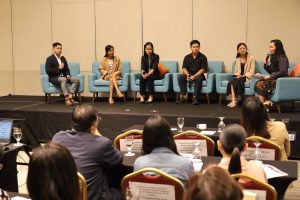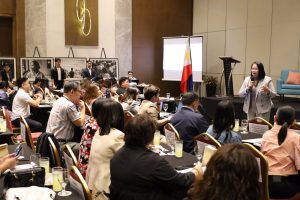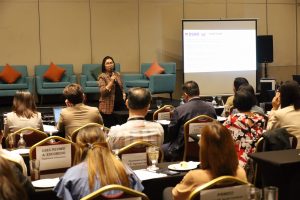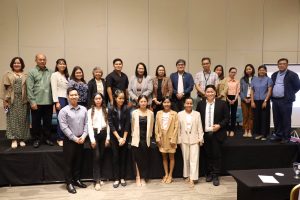
The Department of Social Welfare and Development (DSWD), through the Pantawid Pamilyang Pilipino Program-National Program Management Office (4Ps-NPMO), has continued its advocacy for the self-sufficiency of 4Ps beneficiaries by hosting a multi-stakeholder forum on Thursday (June 27) at the Hotel Lucky Chinatown in Binondo, Manila.
Dubbed, “4Ps: Towards Beneficiaries’ Self-sufficiency”, the forum aimed at bringing together representatives from national and local government, private sector partners, and beneficiaries to discuss and strategize on enhancing the program’s impact and sustainability.

In her message, DSWD National Household Targeting System and 4Ps Undersecretary Vilma B. Cabrera emphasized that the forum provided a platform for the DSWD and its partners to determine gaps that needed to be addressed in pursuit of the self-sufficiency of the 4Ps beneficiaries.
“Makikita natin na iisa lang ang ating misyon, to break the vicous cycle of intergenerational cycle of poverty,” Undersecretary Cabrera said.
“Maraming mga insights kaninang sinabi [ang mga resource persons] na maaaring tutukan ng ating mga partners kung ano ang mga kakulangan para ang isang household na tatawid ay magkaroon ng higher level of well-being,” the Undersecretary added.
Undersecretary Cabrera also expressed gratitude to the partner stakeholders for assisting the DSWD in continuously improving the 4Ps, specifically citing the latest digital financial literacy initiative with financial service providers.
“Maraming salamat sa inyong tulong at sa inyong paggabay sa ating beneficiaries during the time you deliver your messages during the digital financial literacy activities,” Undersecretary Cabrera said.
The “e-Panalo ang Kinabukasan” financial digital initiative aims to educate, inform, and encourage beneficiaries to utilize digital applications for managing their finances, especially for those beneficiaries living in remote areas.
“Huwag kayong magsawang tumulong sa amin para at least matulungan natin ang ating mga kababayan in the vulnerable sector. So, at this point, I wish to thank you all for coming over [to the forum],” Undersecretary Cabrera said.

4Ps National Program Manager and Director Gemma Gabuya, in her remarks, highlighted the critical role of collaboration among all stakeholders in achieving the program goals of self-sufficiency for its beneficiaries.
“Kung ano man po ang mga milestone na na-achieve ng program, you are part of that. Kasama po kayo [mga partners]. Kaya sa araw na ito, we will again reminisce and celebrate ang ating mga contributions. Nandito tayong lahat, sabi nga, we talk about partnership, we talk about convergence, we talk about whole of nation approach,” Director Gabuya stressed.
The 4Ps national program managers also urged the beneficiaries to be part of the overall effort in combating poverty.
“They [4Ps beneficiaries] will be the ones to stop the intergenerational cycle of poverty. Iyon po ang long term goal ng programa. [Ang] short term, makapag-aral ang mga anak ng mga mahihirap. We have to invest in their education and health because naniniwala tayo na the more the children are in school, the greater or the higher chance of getting out of poverty,”
During the forum, select 4Ps beneficiaries from five regions who have excelled in professional board examinations, alongside a diverse range of stakeholders, such as development partners, civil society organizations (CSOs), and local government, shared their insights and experiences with the program, as well as its accomplishments and areas for improvement.
The said forum is part of the 4Ps Law 5th anniversary celebration since its institutionalization in 2019 with the passing of Republic Act No. 11310.
It was attended by the member agencies of the 4Ps National Advisory Council, National Technical Working Group, development partners, provincial social welfare and development offices, and 4Ps beneficiaries.
The DSWD, through its 4Ps-NPMO, continues to call for support from its partners in helping 4Ps beneficiaries achieve their desired well-being through the provision of conditional cash grants for the education, health, and nutrition of children.

